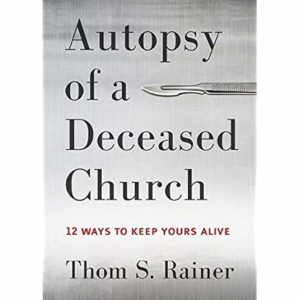 Part of the joy of re-reading a book you loved in the past is getting to notice elements of writing craft that you cannot see the first time through.
Part of the joy of re-reading a book you loved in the past is getting to notice elements of writing craft that you cannot see the first time through.
For example, in Mary Doria Russell’s The Sparrow, there is early-on (Chapter 6) a very short scene in which the main character is being badgered by a reporter. His friend and protector “went through the door low and fast. The momentum of his drive slammed the intruder into a wall…” We as readers are told that this incident is “literally nightmarish” for our lead, but we have no idea why, nor do we know we’ve just had a bit of foreshadowing. That gift awaits us only if we revisit those early pages after reading the whole book.
In our age, many of us find it hard enough to finish a good book the first time through, let alone to tackle a second reading. But the second reading is where we find meanings impossible to see without the repeated exposure.
The same is true of Bible study. So much is there, waiting for us to find it, but we are best served by repeated readings. Our patient study and revisiting of Scripture grant us insights and blessings we rarely are able to see the first time through.




 I’ve been thinking about the connection between praising and giving. There must be a strong, direct connection because congregations all over the nation, if not the planet, routinely close the “giving” portion of the worship service with the Doxology: “Praise God from Whom All Blessings Flow.”
I’ve been thinking about the connection between praising and giving. There must be a strong, direct connection because congregations all over the nation, if not the planet, routinely close the “giving” portion of the worship service with the Doxology: “Praise God from Whom All Blessings Flow.” A blog entry here two and a half years ago (January 2016) discussed a phase I was in of reading Marilynn Robinson books. The phase is currently being revisited because my reading buddy, Linda, and I have taken up
A blog entry here two and a half years ago (January 2016) discussed a phase I was in of reading Marilynn Robinson books. The phase is currently being revisited because my reading buddy, Linda, and I have taken up  Several months ago, a friend and I read and discussed Jacqueline Winspear’s
Several months ago, a friend and I read and discussed Jacqueline Winspear’s  We’ve heard them preached on … some of us have even memorized the whole list of them … but often some confusion lingers about the “fruit of the Spirit” written about in the fifth chapter of Galatians. The first eight in the list are accepted readily: love, joy, peace, patience, kindness, goodness, faithfulness, and gentleness. We all see the value and blessing of these. But then there is that ninth one—that’s the one that gives us trouble: self-control.
We’ve heard them preached on … some of us have even memorized the whole list of them … but often some confusion lingers about the “fruit of the Spirit” written about in the fifth chapter of Galatians. The first eight in the list are accepted readily: love, joy, peace, patience, kindness, goodness, faithfulness, and gentleness. We all see the value and blessing of these. But then there is that ninth one—that’s the one that gives us trouble: self-control. I heard recently that there are 7,000 promises in the Bible, and admit that I have no idea how that number was determined. Maybe it’s just a nice, round number with a 7 in it. But whether they total 7,000 or not, there are too-many-to-count extraordinary promises in the Bible. Every few weeks, this blog looks at some of them.
I heard recently that there are 7,000 promises in the Bible, and admit that I have no idea how that number was determined. Maybe it’s just a nice, round number with a 7 in it. But whether they total 7,000 or not, there are too-many-to-count extraordinary promises in the Bible. Every few weeks, this blog looks at some of them. We’re now a couple of weeks into Lent, which started with Ash Wednesday, February 14. Did you “give something up”? If you made that commitment, how is it going for you? Maybe you are fasting from a particular food or a certain behavior. Maybe you are keeping a commitment to focus on your spirituality every day. Or maybe you’re beginning to think of other ways you might honor this season.
We’re now a couple of weeks into Lent, which started with Ash Wednesday, February 14. Did you “give something up”? If you made that commitment, how is it going for you? Maybe you are fasting from a particular food or a certain behavior. Maybe you are keeping a commitment to focus on your spirituality every day. Or maybe you’re beginning to think of other ways you might honor this season. Today the world lost a spiritual giant whose ministry was shared around the world in some 90 countries, and here in the United States with huge crowds of people and with every US President from Harry Truman to George W. Bush.
Today the world lost a spiritual giant whose ministry was shared around the world in some 90 countries, and here in the United States with huge crowds of people and with every US President from Harry Truman to George W. Bush. A friend recently lent me a fascinating and reader-friendly book entitled
A friend recently lent me a fascinating and reader-friendly book entitled  The Bible offers a lot of promises, but there may be none more extraordinary than the one in I John 5:14-15:
The Bible offers a lot of promises, but there may be none more extraordinary than the one in I John 5:14-15: